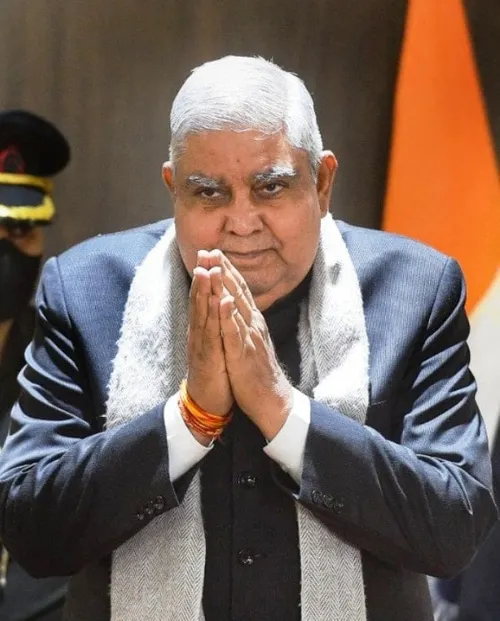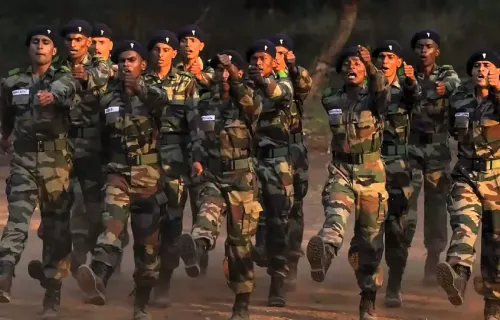Joseph Kabila, the ex-president of the Democratic Republic of Congo, has lashed out at the government of his successor – calling it a “dictatorship”.
The 53-year-old made a 45-minute speech live on YouTube on Friday evening from an unspecified location a day after the Senate lifted his immunity from prosecution.
DR Congo’s authorities intend to charge the former president with treason and war crimes, linking him to the Rwandan-backed M23 rebels, who have taken control of several towns in the east.
Kabila, in power between 2001 and 2019, said he had broken his silence because he felt the unity of the country was at risk.
Analysts say any trial of Kabila could further destabilise the country, which has been battling the M23 rebellion since 2012.
The government of President Félix Tshisekedi has not responded to the speech in which Kabila also set out a 12-point plan that he said could help end decades of insecurity in the mineral-rich east of DR Congo.
Dressed in a navy suit with a Congolese flag badge pinned to his lapel, Kabila stood before a lectern in what was termed an “address to the nation” – a broadcast topped and tailed by the national anthem.
The YouTube link shared by his spokesperson has subsequently been deleted, but the recording has been shared by numerous other accounts.
Once an ally of Tshisekedi, Kabila fell out with his successor and their parties’ coalition formally ended in 2020.
The former president has been living outside the country for two years – he initially left to pursue a doctorate in South Africa.
During his speech, he hit out at “arbitrary decisions” taken by the government last month after “rumours” that he had travelled to the eastern city of Goma.
This prompted the authorities to ban his People’s Party for Reconstruction and Democracy (PPRD) and order the seizure of his assets.
It all “testifies to the spectacular decline of democracy in our country”, Kabila said.
During his speech, he did mention that he intended to go to Goma “in the coming days”, where he is not in danger of arrest as the city has been under control of the M23 rebels since January.
Kabila also hit out at the president for trying to undermine the constitution, at parliament for failing to hold the president to account and at the justice system for allowing itself to be “openly exploited for political end”.
He was critical of government’s handling of the economy, corruption and public debt, which he said had “skyrocketed” to more than $10bn (£7.3bn).
Kabila, a former general, was also disparaging about the government’s handling of the security situation countrywide, especially the use of pro-government militias as “auxiliaries” of the armed forces.
“The national army… has been replaced by mercenary bands, armed groups, tribal militias, and foreign armed forces that have not only demonstrated their limitations but also plunged the country into indescribable chaos.”
He mentioned that one of these armed groups was the Democratic Forces for the Liberation of Rwanda (FDLR), an ethnic Hutu militia involved in the Rwandan genocide in 1994 and still active in eastern DR Congo.
Rwanda sees the presence of the FDLR rebels as an existential threat. Rwandan troops are currently in DR Congo in support of the M23, which is led by ethnic Tutsis who say they took arms to protect the rights of the minority group.
Kabila urged the withdrawal of “all foreign troops” from DR Congo and welcomed a recent decision by Southern African Development Community (Sadc) to pull out troop that had been deployed to help the army fight the M23.
After 18 years in power, Kabila maintained that the achievements he had made had been squandered.
“In record time – six years – we are back at square one: that of a failed, divided, disintegrated state, on the verge of implosion, and ranked high on the list of the most corrupt and heavily indebted poor countries,” he said.
Reaction to his address has been mixed, with some pointing out the irony that many of his criticisms of Tshisekedi’s administration reflected those levelled at his own government.
“The dictatorship must end, and democracy, as well as good economic and social governance, must be restored,” he said towards the end of the speech.
Kabila noted that the government had “finally resolved to sit around the same table” with M23 but felt other countrywide peace initiatives backed by the Catholic church should be pursued.
DR Congo and Rwanda, which denies accusations it backs the M23, may be edging towards a peace deal to end the fighting, which has seen hundreds of thousands of civilians forced from their homes in recent months.
The two countries signed a preliminary agreement in Washington last month and said they had agreed on a pathway to peace.
Anurag Dhole is a seasoned journalist and content writer with a passion for delivering timely, accurate, and engaging stories. With over 8 years of experience in digital media, she covers a wide range of topics—from breaking news and politics to business insights and cultural trends. Jane's writing style blends clarity with depth, aiming to inform and inspire readers in a fast-paced media landscape. When she’s not chasing stories, she’s likely reading investigative features or exploring local cafés for her next writing spot.






